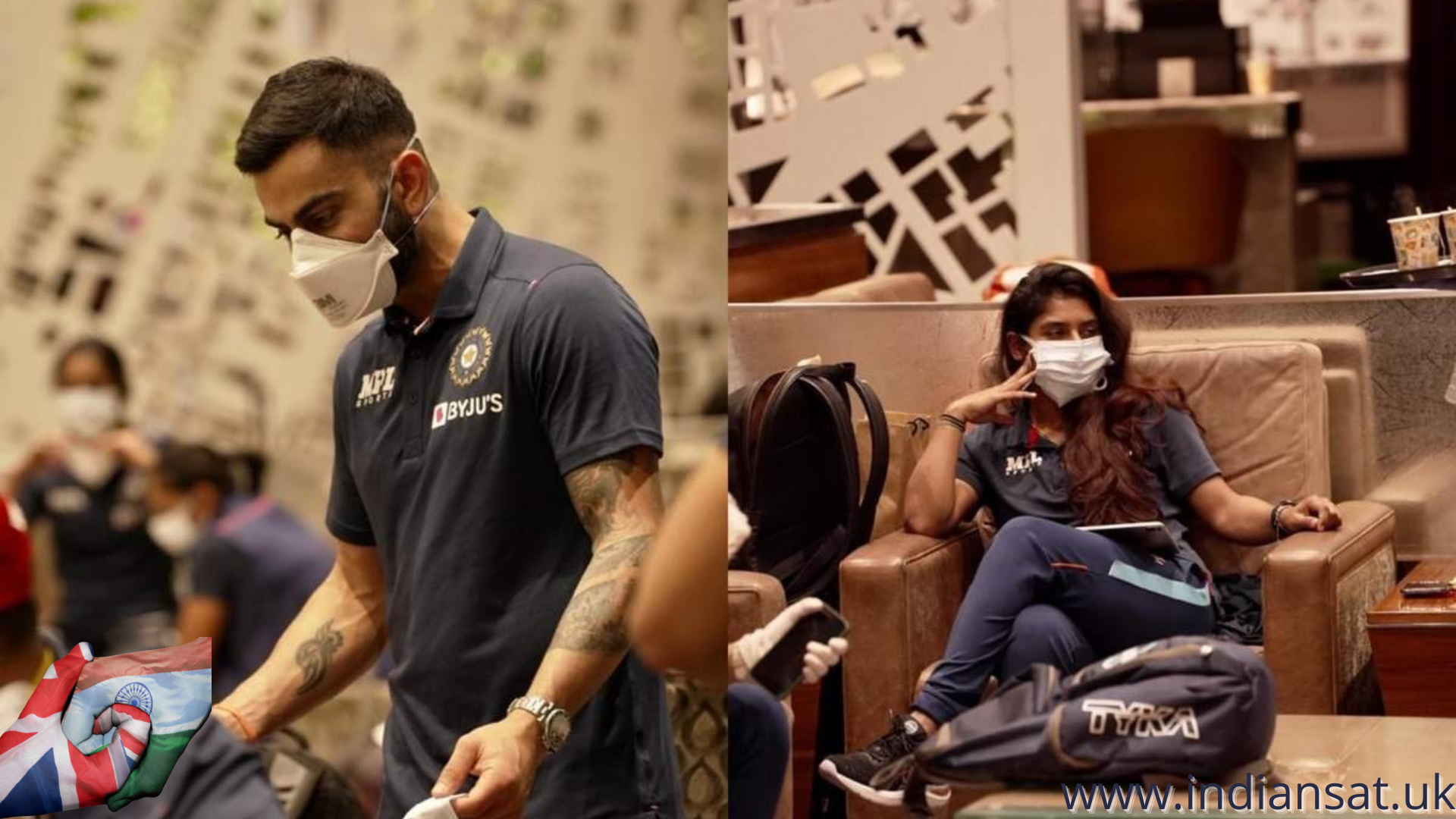The World Test Championship (WTC) final followed by a five-Test series in England will keep Virat Kohli and Co in England for three-and-a-half months in bio-bubble.
The Indian team has embarked on a cricket tour that would be their longest in recent times. The World Test Championship (WTC) final followed by a five-Test series in England will keep Virat Kohli and Co in England for three-and-a-half months in bio-bubble. In fact, this 104-day stay for Virat Kohli and his men on foreign soil offers a throwback to India’s 1959 tour of England, when for over a four-and-a-half-month period, the team had travelled across the length and breadth of the Blighty, from the Black Country to Blackpool.
How will the current tour pan out?
The Indian team left for England on June 3. At the moment, they are undergoing a 10-day quarantine, including three days of hard quarantine, when the squad members can’t even go to gym. India will start training after the quarantine period ends.
The WTC final against New Zealand in Southampton will be played from June 18 to 22. June 23 has been kept as a reserve day. There’s a 42-day gap between the WTC final and the first Test against England, which commences in Nottingham on August 4. A few tour games are scheduled before the first Test. The fifth and final Test in Manchester ends on September 14. The total duration of the tour is 104 days.
Why can’t India come back after the WTC final?
Reeling under the second wave of the pandemic, India is on the red list as per the United Kingdom government’s Covid classifications. The UK government’s latest advisory says: “If you have been in a country or territory on the red list in the last 10 days you will only be allowed to enter the UK if you are a British or Irish National, or you have residence rights in the UK.” Upon arriving in England, the direction is to “quarantine for 10 full days in a managed quarantine hotel” and “take a coronavirus (COVID-19) test on or before day 2 and on or after day 8 of quarantining”.
The Indian team has been granted permission by the UK government to go there for the cricket tour. Coming back and going there again will complicate the entire process. Beyond the government level communications, revisiting the country will place the team in another 10 days of quarantine to start with. Also, cricket at the moment is being played from bio-bubble. The International Cricket Council (ICC) changed the WTC final venue from Lord’s to Rose Bowl in Southampton to ensure that the match could be staged safely.
“The decision, taken by the ICC Board, follows discussions with the England and Wales Cricket Board (ECB) where a range of options were considered to ensure the inaugural final could be staged safely with the potential impact of COVID-19 minimised for all involved,” the ICC had said in a statement.
The venue’s on-site accommodation “will significantly reduce” the risk of Covid transmission and will make the bio-bubble almost foolproof. This is how the five-Test series against England, too, will be played. Given the bubble-to-bubble transfer arrangements, returning home and going back weren’t practically feasible.
Why is such a long tour unnatural in modern-day cricket?
Teams now only play international matches during overseas tours apart from a couple of warm-up fixtures. This is in sync with a cramped cricket calendar. India’s 2018 tour of Ireland and England had a duration of 77 days during which five T20Is, three ODIs, just one tour game and five Tests had been played.
Compare this to India’s 1971 tour of England, when for the first time India won a Test series there under Ajit Wadekar’s captaincy. The tour duration was 77 days for a three-Test series. India had played 16 tour games besides three Tests.
How is the current tour a throwback to the 1959 series?
In 1959, India led by Dattajirao Gaekwad went to England to play a five-Test series. It’s a different story that they were clean-swept… The tour commenced on April 29 and ended on September 11. A tour that lasted for 136 days had 28 tour games apart from five Tests. The total duration of the current tour is 104 days for six Tests and alongside the 1959 sojourn, this probably has a feel of the pre-World War Two tours, when teams used to travel by ship.
How important will be mental health during such a long tour?
Massively important, as observed by captain Virat Kohli and head coach Ravi Shastri. While the Test squad will be in England, another Indian team largely comprising T20 players will be touring Sri Lanka. The captain and the coach were asked about that at the pre-departure press conference. “With the current structure and the kind of structure we are competing inside, it’s very difficult for players to stay motivated for a long time. So, this will definitely become a norm of the future where apart from the workloads, I think the mental health side of things will come into the picture big time because you don’t have an outlet at all in today’s day and age,” Kohli said.
Will the team be allowed to go outside the bubble during the break?
The BCCI is yet to take a call if the players and staff can go outside their hotel during the break after the WTC final before returning to the bubble ahead of the tour games.
![]()






